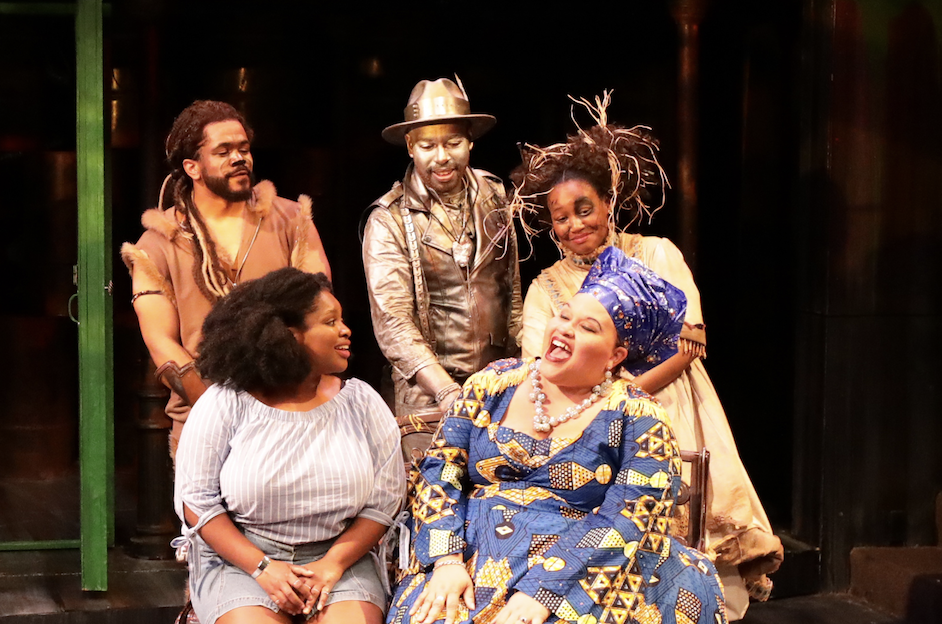By Richard Campbell
The Lyric Stage mounted a revival of the 1970’s musical “The Wiz” this past Sunday, with guest director Dawn Simmons at the helm, Musical Director Allyssa Jones, and Choreography by Jean Appolon. It was a show that had some amusing and touching moments, that introduced Boston audiences to up and coming talent, but the production overall was a little underwhelming. One of the distinguishing features of this musical- besides it’s snappy score, clever jokes, and endearing characters- is a synergy between energetic choreography and pure magic. What we get here was an earnest group trying hard to take flight, hampered by a lack of continuity in production values, more attributable to the leadership roles than the talents of the cast.
The powerful voices in this show are the main selling point. Carolyn Saxon’s portrayal of Aunt Em and Glinda lead the way with effortless vocal power of a veteran singer, as well as a convincing doubling of parts. She is matched by the booming voice and stage presence of Davron Monroe who maximized coming timing. Despite being miscast, Salome Smith as Dorothy has a beautiful voice and attempted youthful naivete but could not portray the requisite child-like wonder. Happily, the voices of Elle Borders’ Scarecrow, Steven Martin’s Tin Man, and Brandon Green’s Lion shored up the ensemble. For the big numbers like “Ease on Down the Road” the cast largely held its own, but the choreography for this show was redundant and behind the curve. Where some cast members had no problem hitting the mark, others did not possess the strength and flexibility required for dancing on this level.
One aspect where all the cast was excellent was its comic timing. Brandon Green’s very nuanced and witty Lion, Damon Singletary’s over the top Addaperle stood out particularly. The vocal fluidity and delicacy of movement of Elle Borders as the Scarecrow made me wonder why she wasn’t cast as Dorothy. The comical mime skills and empathetic expressions of Steven Martin as the Tin Man revealed the heart of an actor. It was the clever delivery of the jokes by the main players that mostly what saved this show. The ensemble must rock the house with excellence in movement to make the whole “imaginary” world become spell binding. Perhaps it was because of its small size that the ensemble did not appear to have that transformative power. There was a directorial habit of creating static stage scenes where the actors are waiting upon the emotions of the principal singer in a manner that pulled energy out of the stage picture.
While there were clever moments of stage business, one needed more mercurial and magical events. When someone is supposed to disappear on stage, you really need to make that happen, not ask your audience to pretend it did. When your cast is supposed to be overwhelmed by the legendary poppy field, it can’t be represented by a few handfuls of cheap confetti. The throne of the Wizard needs to be ultimately imposing and beautifully done, not a series of oil drums and bland walls. The small hall of the Lyric is a tough house acoustically; but the sound design should not undermine the vocalists or the orchestration. That all these problems with polish did not invade too deeply on having fun with the cast of this production is a tribute to their talents. This would be a fun show for Boston school kids to see. One can’t help but to think if certain details were attended to this breezily passable show could have been a stellar revival.






